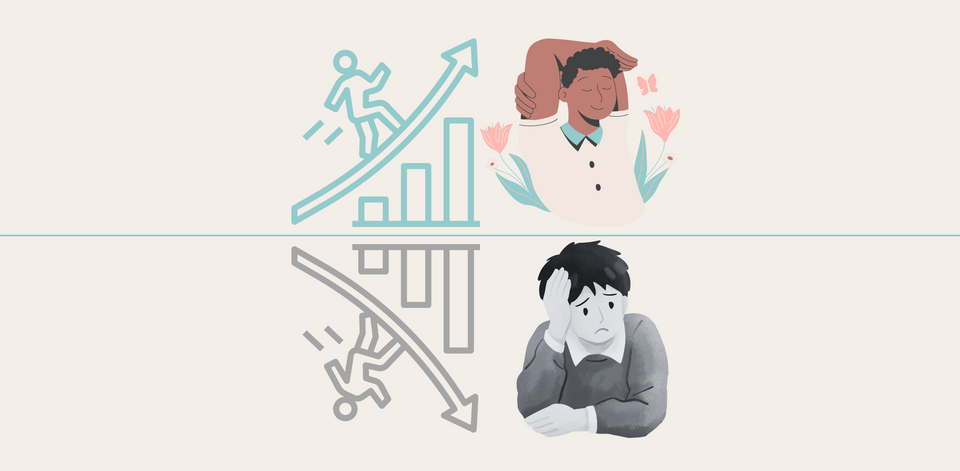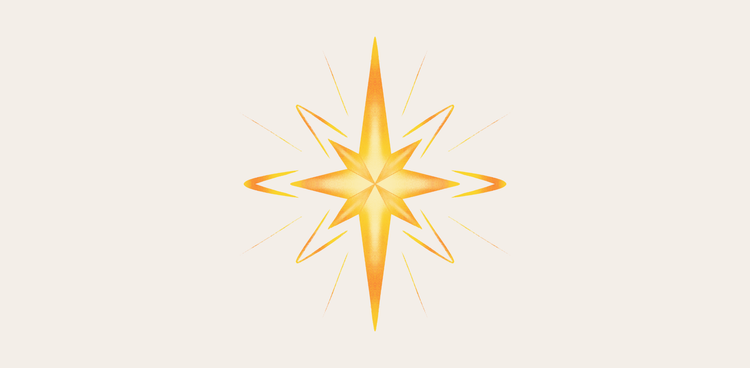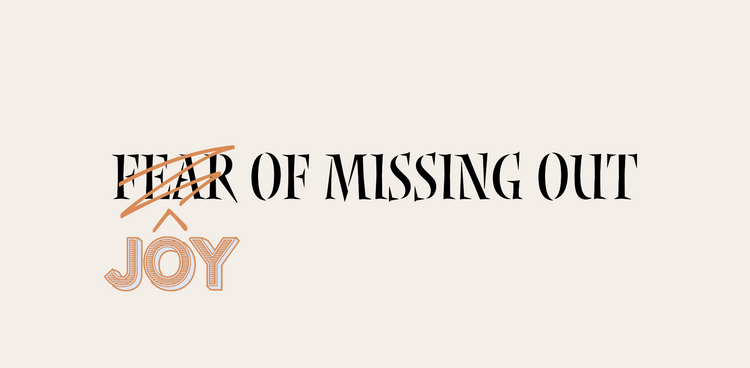When your Potential becomes a Curse (and how to turn it into a Blessing)

I have a good friend. He started the good habits I'm still working on years ago. Now, he does a lot of amazing things and succeeds in all of them. He never gets tired and never has bad days.
I wish I could be like him, but I can't.
This wonderful friend, let’s call him “my potential” - he’s just killing it. He did all the things I should’ve done. So whenever I reflect on where I stand today, I feel behind. I feel like I’ve missed my potential. Sound familiar?
If it does, I’m sure you know this feels devastating. But it doesn’t have to. Thoughts aren’t facts. Feeling behind doesn’t mean being behind. We can work with these thought patterns.
So that’s what I’ve done every time I feel the sentiment come up. Along the way, there’s two things I’ve found incredibly helpful: A simple truth and a simple tool.
The Simple Truth
First, we need to acknowledge reality. Literally. Because the comparison ignores the one crucial advantage that my good friend has:
My potential never woke up in the morning and felt absolutely useless.
My potential learned my lessons, but without the failures that taught them.
My potential knew exactly where he needs to go, but without trying the alternatives.
In short: He gets all the upsides of exploration, but none of the downsides.
So is it truly fair to look back this selectively? Take achievements and lessons, leave their causal events behind and then blame myself for taking so long to get here? I don’t think so.
But since when does self-doubt conform to fairness? Self-doubt takes & twists reality just the way it wants to. Compares you with people that have done better, but never with your old self. Compares their best days to your average days. Self-doubt loves comparing selectively.
And it will continue to do exactly that - it’s an encapsulated bias (→ one you can’t get rid of by reflection). This means that if we want to discard these doubts, just understanding how it works won’t be enough. We need to turn the idea of potential against the doubts. We need to add some action.
The Simple Tool
The central thought we’re trying to work with here is this: “You could’ve done more.” Which is pointless, as we’ve learned. But let’s say we believe this thought for a second. That doing more is the most important thing in the world.
What then is the point in beating yourself up about the past? What does it contribute? What better things could you do with your time?
Sure, starting to write two years ago would’ve been cool. But I didn’t. So why not start now? Sure, if you’d picked up an instrument as a teenager, you’d be amazing by now. But you didn’t. So why not start learning today?
There’s an ancient Chinese proverb that captures this sentiment perfectly:
“The best time to plant a tree was 20 years ago. The second best time is now.”
Once you’re done imagining what a potential self could have done, you’re free to start realising your true potential. Which is where imagination becomes action. Where a proverb becomes a practical exercise:
2. Ask yourself what they would do.
3. Do exactly that.
Boom, you’ve just reached your potential. You’ve made the best decision you can, and acted on it. What’s your self-doubt gonna say about that?
Side Note on the Origins of this Exercise.
This idea originated with the Stoic Philosopher Seneca. In his Letters to Lucilius, he writes:
“We need to set our affections on some good man and keep him constantly before our eyes, so that we may live as if he were watching us and do everything as if he saw what we were doing”
In short: Decide on a role model, and act in a way that would make them proud.
With the recent reemergence of Stoic teachings in the zeitgeist, other authors have expanded on it. Take James Clear and his perennial best-seller, Atomic Habits. In Chapter 2, he introduces the idea of casting votes. Going beyond external role models, he broadens the tool to apply for any sort of identity shift:
“Every action you take is a vote for the type of person you wish to become. No single instance will transform your beliefs, but as the votes build up, so does the evidence of your identity.”
In this context, the person to model your behaviour after is your idea of a potential self. The best version of you. And the idea is simple: Act like your potential self, and you’ll reach that potential.
The Duality of Potential
This is the duality of your potential. Leveraging the idea of your potential to guide future decisions is a great tool. You get to set ambitious goals about who you want to become plus guidance on how to get there.
The issue simply lies in comparing the present to an imaginary past. While this imaginary comparison might feel like ambition or tough love, it’s the opposite. It’s an incomplete and biased comparison against a person that can’t exist.
Still, these doubts are gonna come up, again and again. Just know that when they do, you can flip them on their head. Turn anxiety into action. And rest in the peace of knowing that for today, you reached your potential.
PS: If this one reads a little more personal, that's because it is. I wrote this in a Hostel in New Zealand after feeling absolutely useless for a week straight. So if you can relate, just know you're not alone. And that feeling useless doesn't equate to being useless.
A journey takes time.
Take care! ☀️




Comments ()